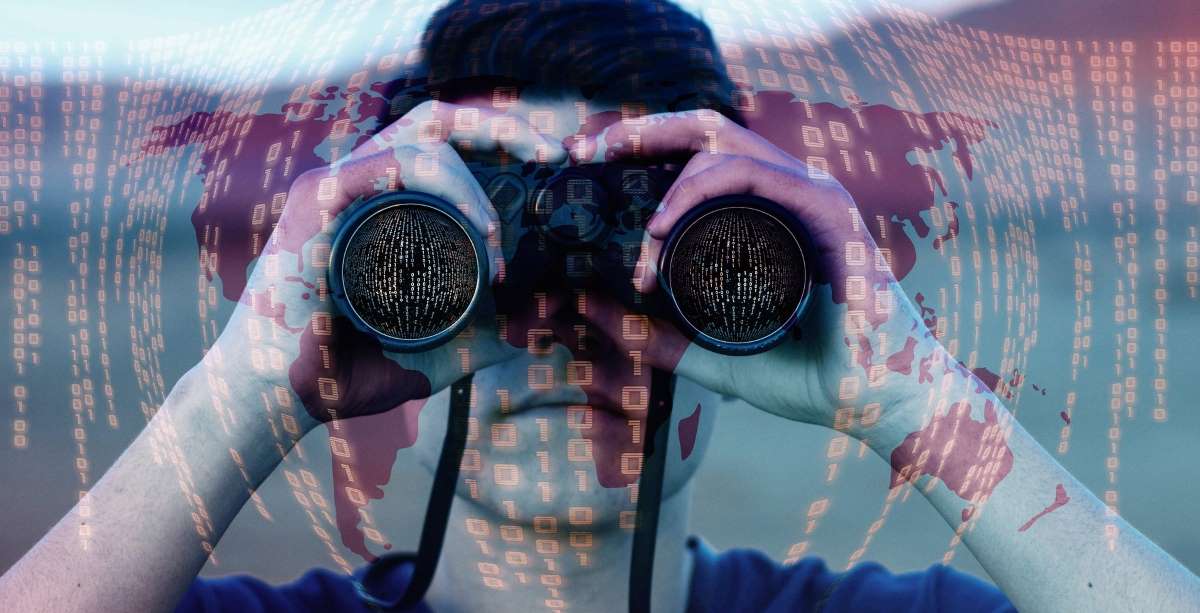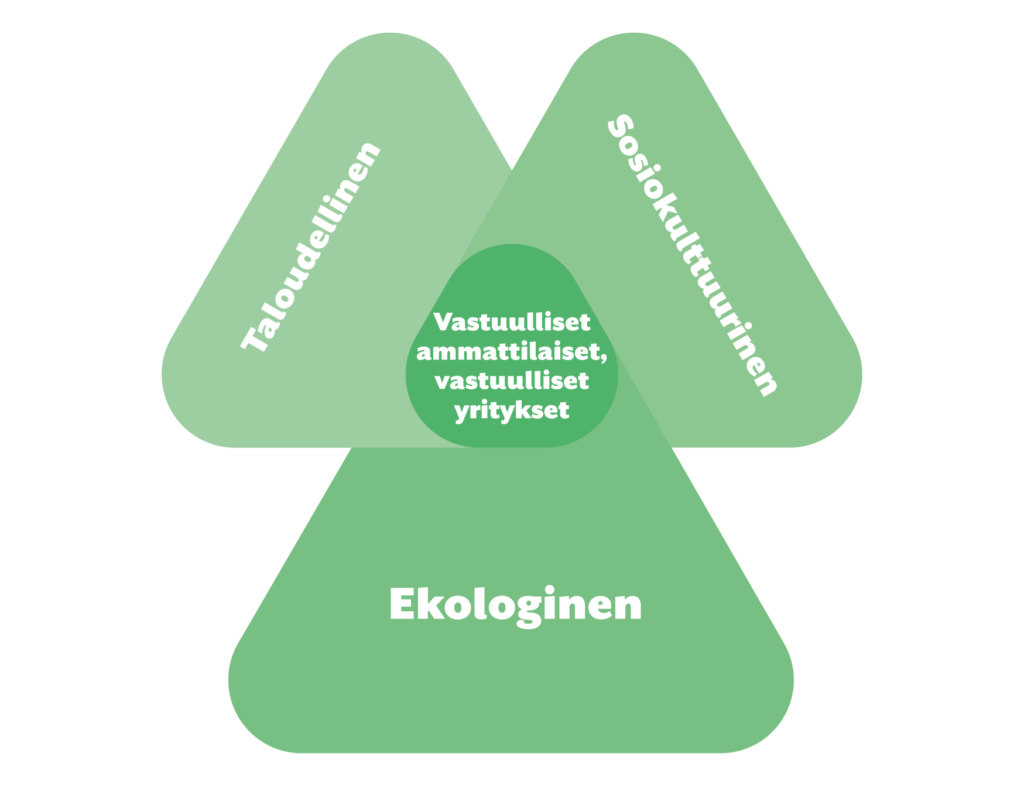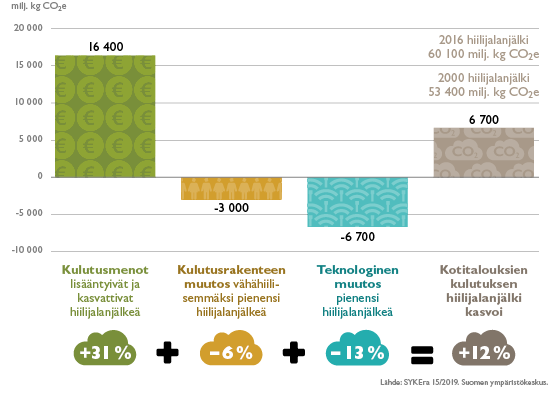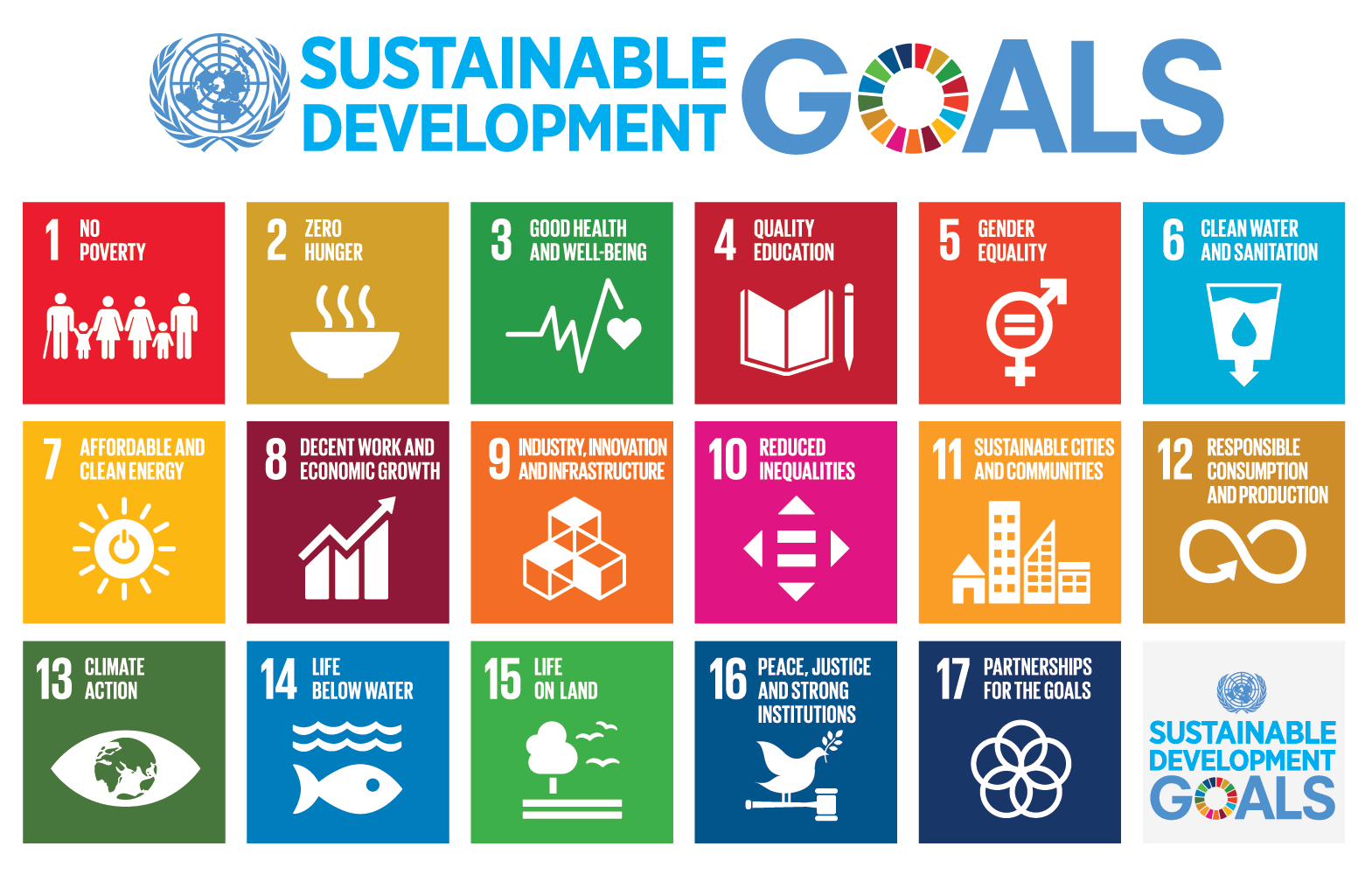Sustainable development: it’s recycling, right?
The term sustainable development may first seem abstract and complex. After all, it’s not that easy to define. However, sustainable development is not just distant objectives and ministers’ speeches, but the measures related to it are very concrete. You’ll learn about them in this course.
For many, recycling is the first thing that comes to mind when sustainable development is mentioned. Recycling is one concrete way of achieving sustainable practices, but recycling is only a small part of sustainability. In this course, you’ll learn a number of other ways of working for a more sustainable future.

Sustainable development is a big goal: a world where human activity is in balance with nature and there is justice between people.
Sustainable development looks a long way into the future
In a sustainable world, every living creature has a chance of a good life — now and in the future. This also applies to future generations. Sustainable development looks a long way into the future.
Sustainable development also looks beyond the borders of one’s own community, region or country. For example, we are not only trying to solve waste management in Finland, but we are considering the entire planet. We can’t move factories to China and say that Finland produces no emissions.
What may also happen is that when we try to solve one problem, we make others worse or even create new ones. To avoid this, sustainable development looks at things from many perspectives and in the long term.

Sustainable development looks broadly and far into the future.
Three dimensions of sustainable development
Sustainable development is divided into three areas, usually referred to as the dimensions of sustainable development. A responsible professional and company will take all of these into account.

- Ecological sustainability means taking care of nature and the environment. It is the foundation of our entire society and human well-being. Without it there will be no economic or sociocultural sustainability.
- Economic sustainability means that we spend money and resources sensibly in the long term. What may look to be cheap at first sight might be expensive in the long run. Economic sustainability means that we live without building debt.
- Social sustainability means taking care of people, such as justice, well-being and education. Cultural sustainability means, for example, preserving languages and traditions. It’s often understood as part of social sustainability.
All these dimensions are related to each other. Ecological practices bring savings, help acquiring customers and improve a company’s competitiveness. If social well-being is not taken care of, it will soon manifest as an increase in sick leaves and employee turnover. Thriving employees also have the strength to care about their environment.
Future-oriented thinking is at the core of sustainable development: we are ensuring well-being now and for future generations. Social well-being, the economy and the entire existence of humans are ultimately dependent on nature. Ecological sustainability is the foundation of sustainable well-being.
Sustainable Development Goals
The world’s countries have jointly agreed on the goals we are aiming for. These goals are called UN Sustainable Development Goals, and there are a total of 17 of them. They form an international plan to mitigate poverty, conflict, inequality and climate change. Some of the goals are highly fundamental, such as eradicating extreme poverty and hunger in the world. Other goals include reducing inequalities and protecting the climate. Click the link below to learn more about the goals.
We are not living sustainably
The fact that we are not currently living in a sustainable way causes many different problems and threats, such as climate change, biodiversity loss, dwindling of resources and poverty.
Earth Overshoot Day
We’re also living in debt. And our debt grows every year. What does this mean?
Earth Overshoot Day is the day of the year on which we have used all the resources Earth regenerates during the entire year. In 2022, Earth Overshoot Day for Finland was 31 March. In three months, we had exhausted all the natural resources that were supposed to last for the whole year. For the remaining 9 months, we live in debt and take from other countries or future generations. Earth Overshoot Day for the whole world is around August.

Is it fair to use all natural resources now and not to leave any to the following generations?
We need many Earths
If all people in the world lived like the Finns, we would need almost four Earths. But we only have one Earth, so we have to reduce consumption significantly.
Will technology save us?
Many believe that technological innovations automatically drive us towards a more sustainable future. They depend on engineers and other experts to come up with the solution.
But this is not the whole truth. Cleaner technologies indeed play a key role, but they alone are not enough. In practice, the continuous increase in human consumption is eating away at the benefits of technology.
Between 2000 and 2016, the carbon footprint of a Finn grew by 16,400 million kilograms. At the same time, technology reduced the footprint by 6,700 million kilograms and the change in consumption patterns by 3,000 kilograms. Yet overall emissions increased significantly.

2016 carbon footprint 60,100 million kg CO2e
2000 carbon footprint 53,400 million kg CO2e
Consumption expenses grew, increasing carbon footprint
Consumption structure change required less carbon, reducing the carbon footprint
Technological change reduced the carbon footprint
Carbon footprint of household consumption increased
Source: SYKEra 15/2019. Finnish Environment Institute.
We need all possible means and all humans—including you —to contribute to a sustainable future.
Sustainable development and a professional: what everyone needs to know
1. Consumption must be changed to favour services instead of goods. As a professional, you know what is happening in your sector and where consumption can be reduced.
2. What we consume must become more sustainable. Encourage your employer to make sustainable choices.
3. Be critical! Don’t believe in green washing that sells a single product feature as sustainable development. Sustainable development is a big picture issue.
